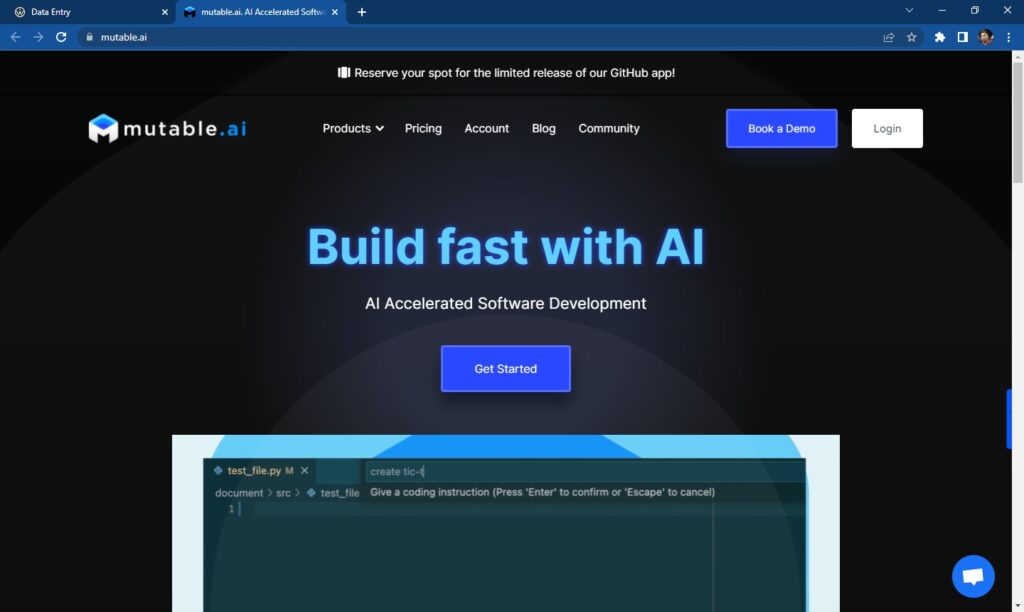By now, most developers have at least heard of GitHub Copilot. It’s become one of the most well-known AI tools in programming—offering smart code completions, suggesting functions, and acting like a virtual pair programmer.
But Copilot isn’t the only player in the AI coding world. In fact, several new and emerging AI software development agents are going beyond Copilot—offering features like full app generation, backend automation, security integration, and architecture support.
Let’s take a look at what’s beyond Copilot and explore some of the most promising AI tools that are shaping the future of coding.
What Copilot Does Well (And Where It Falls Short)
GitHub Copilot is great at:
- Autocompleting code as you type
- Suggesting entire functions or snippets
- Speeding up repetitive tasks
- Helping with unfamiliar languages
But it has limitations:
- It doesn’t understand full project context
- It won’t structure your app from scratch
- It doesn’t handle backend/frontend/database setup
- It offers no built-in UI or project generation
- You still have to do most of the engineering work manually
That’s where newer and more specialized AI agents come in.
1. Flatlogic AI – Full-Stack App Generation in Minutes

What it does:
Flatlogic AI isn’t just a code suggestion tool—it’s an AI software development agent that builds complete web applications for you.
You simply:
- Define your app’s data model
- Choose the tech stack (React, Angular, Vue, Node.js, etc.)
- Click “Generate”
- Download or deploy a full, functional web app
Why it’s better than Copilot for full projects:
- You don’t have to write the boilerplate yourself
- It creates both frontend and backend
- It includes database integration
- It follows modern best practices and clean code conventions
Use case:
Perfect for startups, internal tools, dashboards, admin panels, MVPs, and anyone who wants a working app fast—without sacrificing quality.
2. Amazon CodeWhisperer – Cloud-Friendly Code Completion

What it does:
Amazon’s answer to Copilot, CodeWhisperer is designed with cloud integration in mind, especially for AWS environments.
Why it’s interesting:
- It works well with Python, Java, and JavaScript
- It’s optimized for AWS workflows
- It integrates with Amazon’s other services
Use case:
Teams building cloud-native applications that want AI support tuned for AWS.
3. Tabnine – Privacy-Focused AI for Teams

What it does:
Tabnine is an AI assistant similar to Copilot, but with a focus on team collaboration and data privacy.
Why it’s unique:
- Runs on your own infrastructure (or in the cloud)
- Offers team-based learning models
- Supports code completion across multiple languages
Use case:
Great for enterprise teams or agencies that need more control over where their code and data live.
4. Mutable AI – AI for Refactoring and Documentation

What it does:
Mutable AI focuses less on writing code from scratch and more on improving and refactoring existing codebases.
Why it stands out:
- Can turn messy code into cleaner, documented code
- Supports code refactoring, explanation, and optimization
- Great for working on legacy projects
Use case:
Teams inheriting large, messy codebases that need structure and cleanup.
5. CodeT5+ – The Research-Grade Challenger
What it is:
A powerful open-source model developed by Salesforce and trained specifically for code generation, translation, and understanding.
Why it’s exciting:
- Open-source and customizable
- Can be fine-tuned for specific tasks or company codebases
- Useful for building your own AI agent in-house
Use case:
R&D teams and companies looking to build custom AI workflows into their dev environments.
What Makes These Agents “Better” Than Copilot?
While Copilot is fantastic for line-by-line assistance, these other tools are evolving the role of AI in development by:
- Thinking in terms of entire apps or systems
- Offering backend/frontend/database automation
- Supporting DevOps and security features
- Integrating with cloud infrastructure
- Offering full project generation or end-to-end scaffolding
The difference isn’t just speed—it’s scope. These AI agents don’t just help with code—they help with software engineering as a whole.
How to Choose the Right AI Agent for Your Team
If you’re looking for:
- Full-stack app generation → Go with Flatlogic AI
- Cloud-based workflows → Try CodeWhisperer
- Secure, offline coding → Use Tabnine
- Code refactoring and cleanup → Explore Mutable AI
- Custom AI experimentation → Look into CodeT5+
And yes, for fast code suggestions in your editor, Copilot still has its place too.
You don’t have to pick just one—many teams use a combination depending on the project stage.
Final Thoughts: AI Agents Are Getting Smarter—and Broader
GitHub Copilot showed us what’s possible. But now, the next wave of AI agents is going beyond Copilot, offering deeper support, broader capabilities, and more automation than ever before.
With AI tools we’re entering an era where developers can generate entire applications, reduce repetitive coding, and focus more on creative problem-solving and innovation.
So if you’ve only tried Copilot so far, it might be time to expand your toolkit. Because the next generation of AI agents isn’t just helping you write better code—they’re helping you build better software.